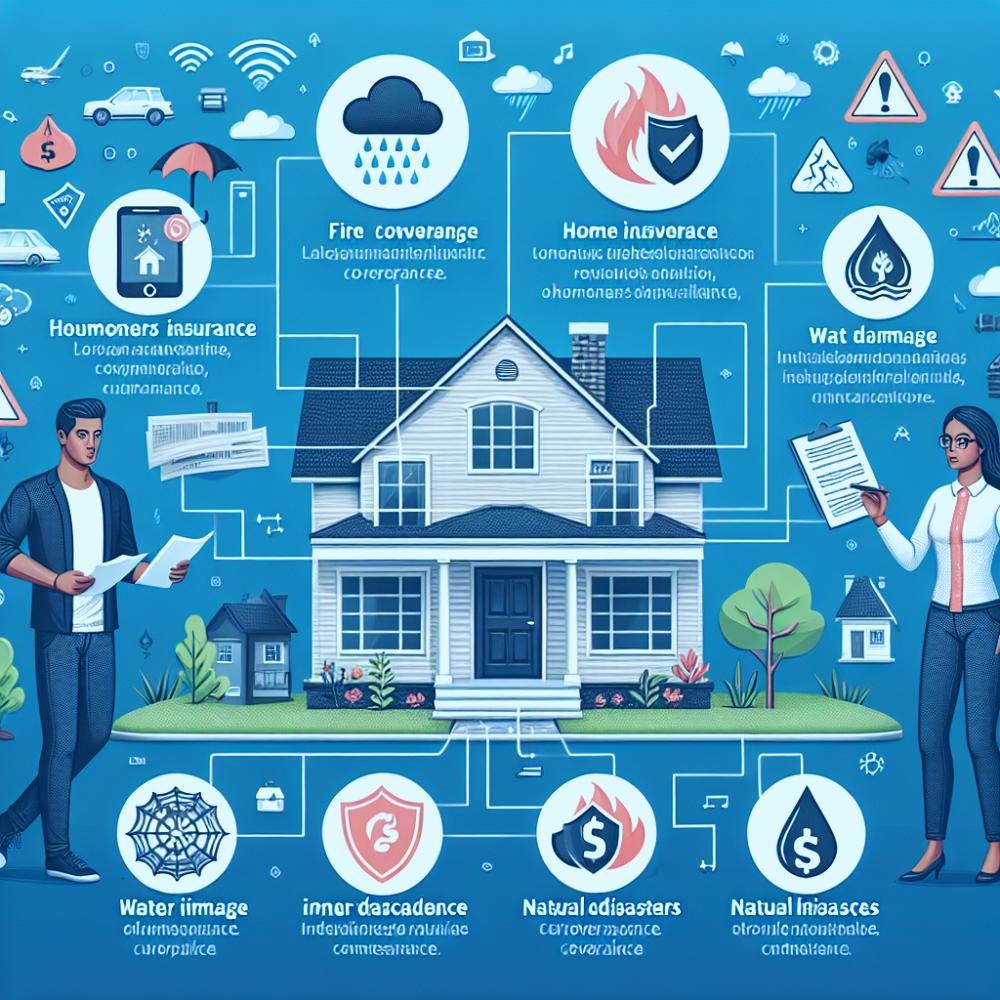
Introduction
Homeowner's insurance is a crucial part of owning a home, providing both property and liability coverage. As a homeowner, it's essential to understand what your insurance policy covers, how it works, and why it's an indispensable part of your financial plan. This article will guide you through the key aspects of homeowner's insurance.
What is Homeowner's Insurance?
Homeowner's insurance is a type of property insurance that covers losses and damages to an individual's house and assets in the home. It also provides liability coverage against accidents that occur within the home or on the property. Essentially, it gives you financial protection against disasters.
Why Do You Need Homeowner's Insurance?
Homeowner's insurance is usually required by lenders to protect their investment in your property. In the event of damage or destruction, the insurance policy pays out to repair or replace your home and belongings. This coverage can save you from significant financial loss if a disaster strikes.
Moreover, liability protection is a critical part of homeowner's insurance. If someone is injured on your property and decides to sue, the liability portion of your policy can cover legal costs and damages.
Understanding the Coverage
Homeowner's insurance typically provides coverage for
Dwelling
This includes the structure of your home and any attached structures, such as a garage. It covers the cost to repair or rebuild your home if it's damaged or destroyed by a covered event.
Personal Property
Your personal belongings, like furniture, clothing, electronics, and other items, are covered if they are stolen or destroyed.
Liability
This protects you against legal issues if someone is injured on your property or you cause damage to another person's property.
Additional Living Expenses (ALE)
If your home is uninhabitable due to a covered disaster, this coverage pays for additional costs of living elsewhere while your home is being repaired or rebuilt.
Choosing the Right Policy
When choosing a homeowner's insurance policy, it's important to consider the following
Replacement Cost vs. Actual Cash Value
Replacement cost coverage pays the cost to replace your home or personal property without considering depreciation. On the other hand, actual cash value coverage deducts depreciation from the payout.
Deductibles
This is the amount you pay out-of-pocket before your insurance coverage kicks in. Higher deductibles can lower your premium, but they also increase the amount you have to pay if a disaster occurs.
Disaster Coverage
Standard homeowner's insurance policies do not cover some natural disasters like earthquakes and floods. You may need to purchase additional coverage for these risks.
Final Thoughts
Homeowner's insurance is a vital tool that protects your home, one of your most significant investments. Understanding your coverage options and choosing the right policy can help you avoid financial disaster. It's advisable to review your policy annually or whenever significant changes occur in your life or home.
Remember, the goal is not just to find the cheapest policy, but to ensure you're adequately covered. Speak with a trusted insurance agent or financial advisor to help you navigate the process and choose a policy that best suits your needs and budget.



















